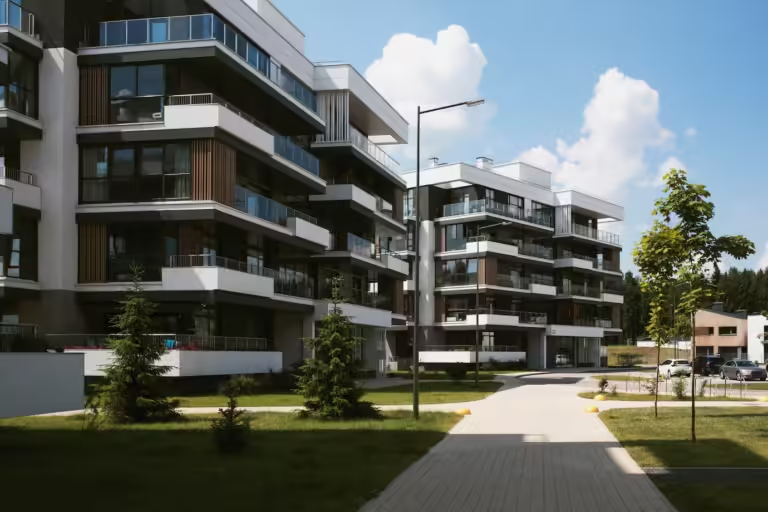Bangkok, known for its vibrant culture, rich history, and bustling streets, has long been a top destination for tourists from around the globe. But beyond the world of travel and hospitality, the city’s tourism industry has a profound impact on another key sector: real estate. In this blog, we’ll explore how the constant influx of tourists influences property demand in Bangkok and why investors should pay attention to this dynamic relationship.
1. The Rise of Short-Term Rentals: Airbnb and Beyond
The boom in short-term rental platforms like Airbnb has significantly altered the landscape of Bangkok’s property market. Many property owners and investors have capitalized on the steady flow of tourists by turning their apartments and homes into short-term rental properties. This has led to an increase in demand for properties, especially in central areas that are popular with tourists, such as Sukhumvit, Silom, and the riverside areas.
a. High Rental Yields
Properties in tourist hotspots offer higher rental yields compared to traditional long-term rentals. Many investors are buying condos specifically to rent them out to short-term visitors, often generating a steady income from high occupancy rates. This makes Bangkok an attractive market for property investors looking to tap into the lucrative short-term rental market.
b. Impact on Local Housing Prices
However, the popularity of short-term rentals has also driven up housing prices in these areas. Locals looking to buy or rent homes in these neighborhoods may find themselves competing with investors, pushing property values higher.
2. Hospitality and Real Estate: Luxury Hotels and Condominiums
Bangkok’s tourism boom has led to the rapid development of luxury hotels and serviced apartments, which in turn influences the demand for upscale condominiums and real estate projects.
a. Development of Luxury Condos
Many international visitors fall in love with the city and decide to purchase second homes or vacation properties. This demand has led to a surge in the development of luxury condominiums, especially in prime areas like Thonglor, Asoke, and Sathorn. These high-end developments cater to wealthy foreign buyers who are attracted to Bangkok’s comparatively affordable luxury market.
b. Hotel-Serviced Apartments
Additionally, many developers are blending hospitality and real estate by offering hotel-serviced apartments. These offer a hybrid solution for tourists or business travelers looking for short- to medium-term stays with the convenience of hotel-style amenities. The demand for such properties is growing as Bangkok becomes a key hub for international business.
3. Tourism Infrastructure Boosts Property Value
Another major factor that ties tourism and real estate together is the ongoing development of infrastructure to accommodate tourists. New transportation lines, improved airports, and expanded road networks not only benefit tourists but also increase the value of surrounding properties.
a. New BTS and MRT Lines
The expansion of Bangkok’s BTS and MRT systems has opened up new areas of the city to tourists and residents alike. As tourists venture out to explore neighborhoods that were previously difficult to access, property developers are quick to seize the opportunity by building new condos and residential projects. Areas like Ratchada, Bang Na, and On Nut have seen significant real estate development due to their improved connectivity.
b. Proximity to Tourist Attractions
Properties close to Bangkok’s major tourist attractions—such as the Grand Palace, Wat Arun, or the floating markets—are highly desirable. Tourists looking for short-term stays prefer accommodations near these landmarks, and property owners have responded by converting houses and buildings into guesthouses, boutique hotels, and vacation rentals.
4. Foreign Investors and Second Homes
Bangkok’s tourism industry not only draws vacationers but also foreign investors who view the city as an attractive place to own property. Many tourists, especially those from countries like China, Japan, and Europe, choose to invest in second homes after experiencing the city’s charm.
a. Appeal to Foreign Buyers
Bangkok’s real estate market offers better value for money compared to other major cities like Tokyo, Hong Kong, or Singapore. This affordability, coupled with the city’s vibrant lifestyle, attracts international buyers. Many foreign tourists end up purchasing vacation homes or investment properties, particularly in tourist-heavy areas.
b. Restrictions and Opportunities for Foreign Ownership
While there are restrictions on foreign ownership of land in Thailand, foreigners are allowed to own up to 49% of the units in a condominium building. This has spurred interest in Bangkok’s condo market, with many developers actively marketing their projects to international buyers.
5. Tourism Trends and Long-Term Investment Opportunities
Tourism in Bangkok is cyclical, with peak seasons driving higher demand for short-term rentals and tourist-friendly properties. However, long-term trends in tourism—such as the growing number of digital nomads and eco-tourists—also create new opportunities for real estate investors.
a. Rise of Digital Nomads
With its low cost of living, excellent internet infrastructure, and vibrant city life, Bangkok is increasingly popular with digital nomads. Many of these long-term visitors are looking for fully furnished rental apartments in centrally located areas, contributing to the demand for flexible, short-term housing options.
b. Eco-Friendly and Sustainable Properties
As travelers become more environmentally conscious, there’s a growing demand for eco-friendly accommodations. Developers and property owners in Bangkok are responding by creating sustainable buildings, from energy-efficient condos to green hotels. This trend is expected to influence real estate development in the coming years, as sustainability becomes a key factor for buyers and renters.
Conclusion: A Symbiotic Relationship Between Tourism and Real Estate
Bangkok’s thriving tourism industry plays a significant role in shaping its real estate market. From short-term rentals to luxury developments and infrastructure improvements, tourism has a direct impact on property demand in the city. For investors and developers, understanding the trends in Bangkok’s tourism sector is crucial for making informed decisions in the real estate market.
As Bangkok continues to attract millions of visitors each year, the demand for tourist-friendly properties, short-term rentals, and luxury accommodations will likely remain strong, making the city a hotspot for real estate investment in Southeast Asia.






